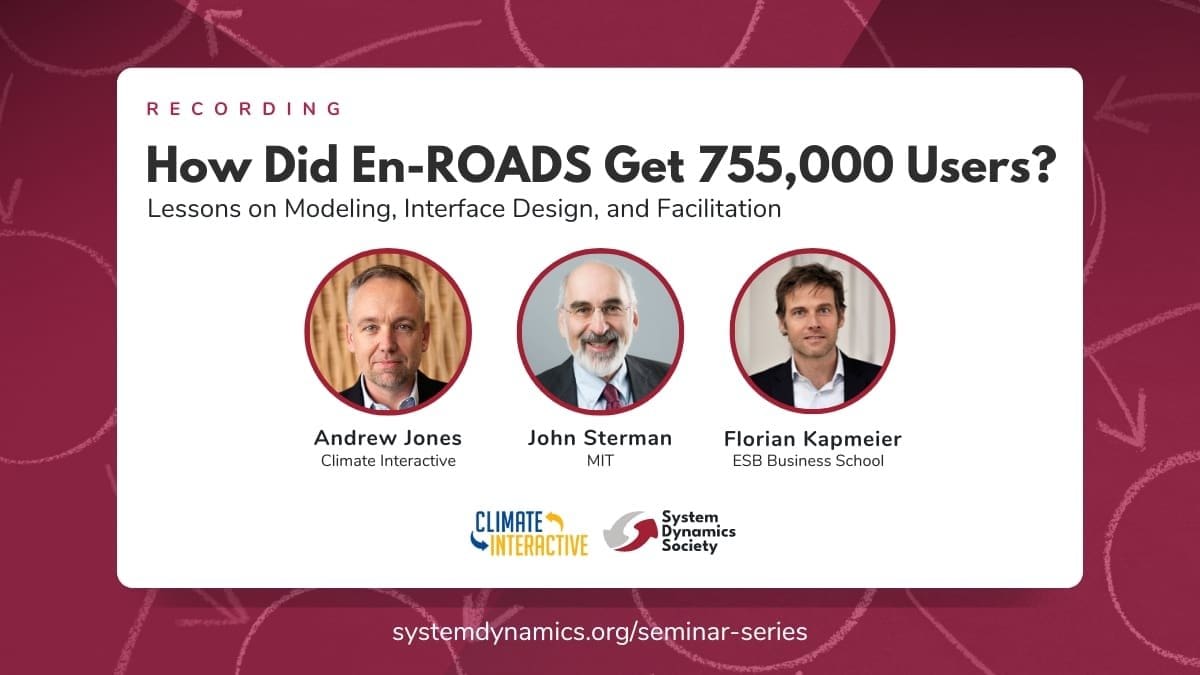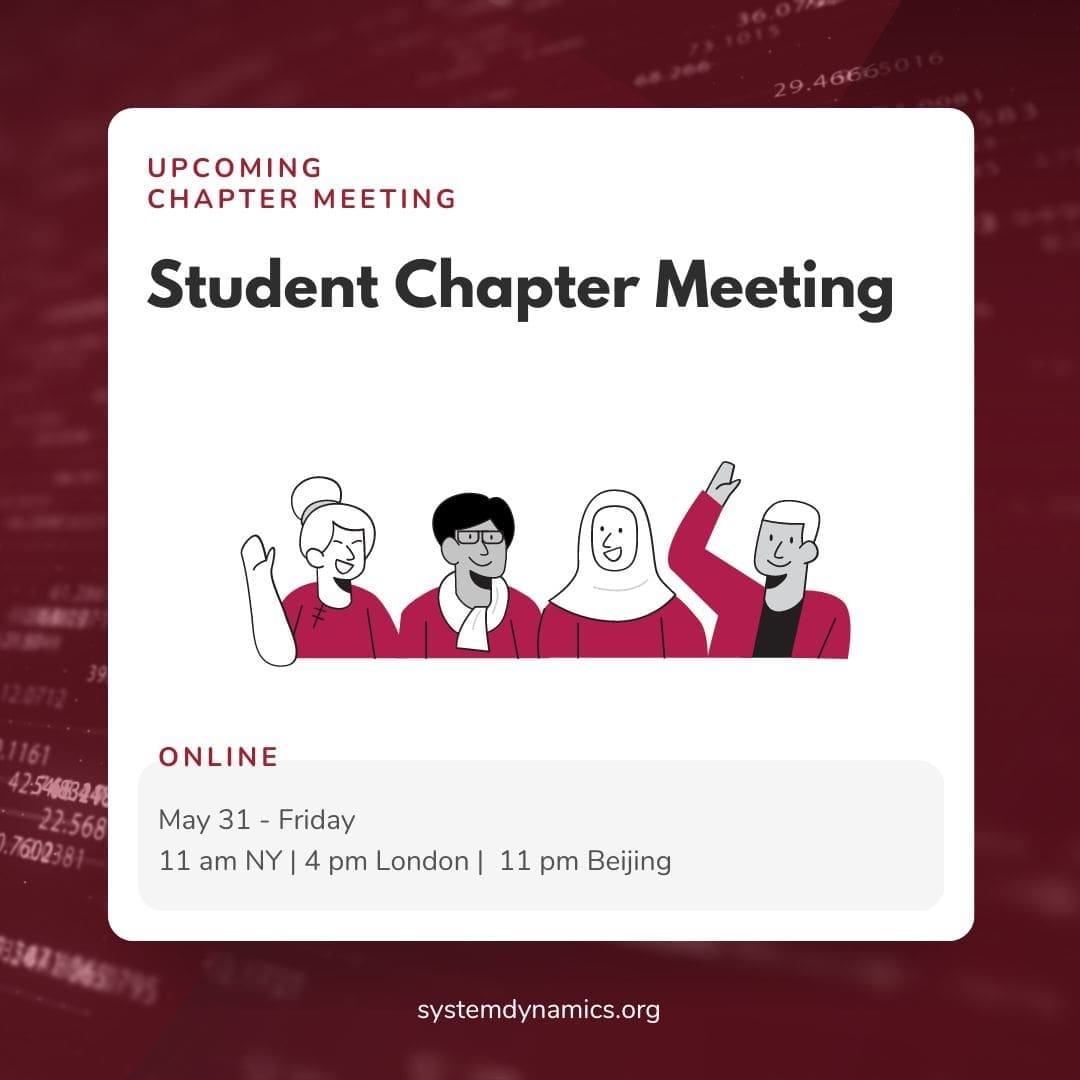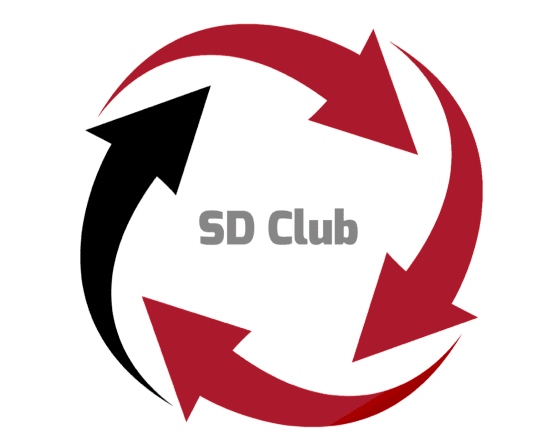How Did En-ROADS Get 755,000 users? Lessons on Modeling, Interface Design, and Facilitation
How Did En-ROADS Get 755,000 users? Lessons on Modeling, Interface Design, and Facilitation
Achieving widespread engagement is a significant challenge with a System Dynamics model. Yet, En-ROADS, a climate solutions simulator developed by Climate Interactive and MIT Sloan, has captivated hundreds of thousands of users globally. In this webinar led by Drew Jones, John Sterman, and Florian Kapmeier, the team shared how their commitment to System Dynamics modeling principles, innovative interface design, and thoughtful facilitation created a global movement. The lessons learned are relevant for all System Dynamics modelers seeking to make a greater impact in their fields.
1. Modeling: Build Trust and Ensure Accuracy
“You have to have a rigorous, evidence-based model that is fully documented and tested every which way.” John Sterman
En-ROADS’ impact is built on a robust modeling foundation that adheres to rigorous standards of transparency and continuous testing. John Sterman underscores the importance of rigorous validation: “You have to have a rigorous, evidence-based model that is fully documented and tested every which way,” he states, highlighting the necessity for clear, accessible documentation that allows users to understand and trust the model’s operations.
The En-ROADS team enhances model reliability by comparing their projections against other prominent models and historical data, identifying discrepancies not to prove correctness, but to pinpoint areas needing improvement. Drew Jones elaborates on this process: “We compare the model against historical data to understand where the discrepancies are and how we can improve. It’s not about proving the model’s correctness but about identifying areas for growth and improvement.”
For System Dynamics modelers looking to build trust, these practices are essential. Providing full transparency through comprehensive documentation and continuously validating models against industry benchmarks are crucial steps in establishing credibility. By adhering to these principles, modelers can ensure their models are technically robust and able to aid decision-making.
2. Interface Design: Guide Users to Key Insights
“We designed the interface to lead a user to discover our modelers’ top insights without support.” Andrew Jones
En-ROADS’ interface is designed to ensure users reach key insights intuitively. Drew emphasized the goal: “We designed the interface to lead a user to discover our modelers’ top insights without support.” The interface offers both a beginner mode for quick understanding and an advanced mode for users with more technical skills, providing detailed charts and additional assumptions. Dynamic visuals and animations transform static data into a narrative, making complex concepts accessible and engaging.
Within a few minutes exploring the En-ROADS interface, new users quickly grasp concepts three concepts:
- “It’s still possible”. To bend the emissions curve and reduce average temperature increase.
- “There’s no silver bullet”. Highlighting that no single solution can solve the climate crisis.
- “Many solutions together”. Emphasizing that combining multiple strategies is necessary to address climate change.
An interface designed around key insights helps users understand complexity. The ease of engaging with a new innovation—trialability—is crucial for initial adoption and fostering word of mouth. Yet, negative experiences can lead to adverse feedback, potentially stifling the adoption and diffusion of the model. Sterman enphasized: “if people try something and have a bad experience, they will generate unfavorable word of mouth that can squelch the adoption and diffusion of your model.”
By focusing on intuitive design and rigorous validation, En-Roads ensures that the simulation is insightful and reliable for understanding possible climate solutions. This strategy serves as a reference for those aiming at making their models both informative and influential. As a System Dynamics Modeler, which 2-3 key takeways would you like users to learn from your model?

3. Facilitation: Create a Safe Space for Learning
“Make sure that you have a safe room where mental models can be shared and challenged, allowing participants to engage deeply and learn together” Florian Kapmeier
Facilitation is critical to En-ROADS’ global impact. Through initiatives like the Climate Workshop and the Climate Action Simulation Game, Climate Interactive effectively conveys the insights of the model by fostering environments that encourage deep learning and reflection. Florian Kapmeier emphasized the importance of these settings: “Make sure that you have a safe room where mental models can be shared and challenged, allowing participants to engage deeply and learn together.” This approach allows participants to openly test their assumptions and understand the underlying dynamics of climate change.
Florian referred to the Top 10 Tips to Engage People with a System Dynamics Model highlighting one key aspect: Making participants mentally simulate before running a scenario. By asking them to predict the effects of different policies beforehand, participants reveal their existing mental models and learn more effectively by comparing their predictions with actual model results. Florian stresses: “Learning happens when the theory of thinking is laid out and people have to make a choice.”
The commitment to creating a secure and open space for dialogue is foundational to the success of the En-ROADS workshops. This facilitation strategy enhances the participants’ ability to understand complex concepts, and encourages them to apply these insights in practical and impactful ways. By ensuring that each session serves as a safe space for exploration and challenge, Climate Interactive fosters an environment where transformative learning and genuine understanding can occur.
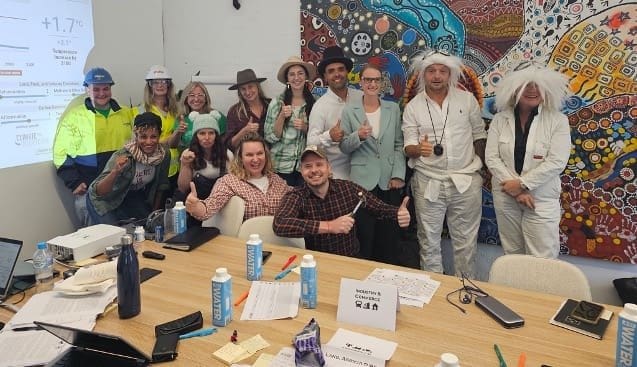
Community & Policy Engagement
Community building has been fundamental to extend En-ROADS’ reach globally. Thousands have completed the En-Roads training program, which empowers facilitators to engage diverse audiences. The Climate Ambassadors program further nurtures hundreds of facilitators who provide workshops worldwide, ensuring a unified network of like-minded advocates. This well-structured support system ensures that these facilitators are equipped to spread their knowledge effectively, fostering a collaborative and impactful community.
In addition to training and support, Climate Interactive’s team emphasized the importance of engaging with policy makers, adapting communication to meet where they are in terms of climate change understanding. Presenting complex model data in an accessible manner is crucial for meaningful engagement. This strategy ensures that decision-makers receive information and are equipped to act on it.
The Power of System Dynamics
System Dynamics is the most powerful way to engage other people in ways to improve system performance. – John Sterman
The success of En-ROADS hinges on a commitment to the core principles of System Dynamics, paired with innovative interface design and effective facilitation strategies. This approach has educated a global audience on climate solutions and empowered them to act. John Sterman, reflecting on the broader implications, asserts, “System dynamics is the most powerful way to engage other people in ways to improve system performance”, underscoring the potential of System Dynamics to facilitate meaningful discussions and drive change across various domains.
Sterman reminded the audience that the discipline’s strength lies in its ability to convey complexity in a way that decision-makers can understand and act upon: “System dynamics modelers need to invite people into the conversation, to join the collective effort and improve system performance together.” This collaborative spirit is reflected in the global network of facilitators, policymakers, and climate advocates brought together by En-ROADS.
For System Dynamics modelers, the challenge lies not only in building robust models but also in effectively communicating results, creating insightful interfaces, and facilitating participatory workshops. Furthermore, By nurturing a community of like-minded advocates, modelers can extend their influence beyond their field and drive meaningful change worldwide.
Watch the recording below
Recent Posts
Society Governance Updates
Society Governance Updates Welcome, Allyson! New President Allyson Beall King joined the Policy Council as our 2024 President. Her primary role is as director of the Washington State University School of the Environment, which focuses on regional ecologies and our...
Call for Presenters: Seminar Series
Call for Presenters: Seminar Series We at the System Dynamics Society are continually seeking vibrant and knowledgeable presenters for our ongoing Seminar Series. As we unfold the calendar, there’s always a place for more insights, experiences, and expertise to enrich...
Honoring Excellence: A Glimpse into the Awards of the International System Dynamics Conference
Honoring Excellence: A Glimpse into the Awards of the International System Dynamics Conference The International System Dynamics Conference brings together experts, practitioners, and students to exchange ideas, showcase real-world applications, and celebrate...
Upcoming Events
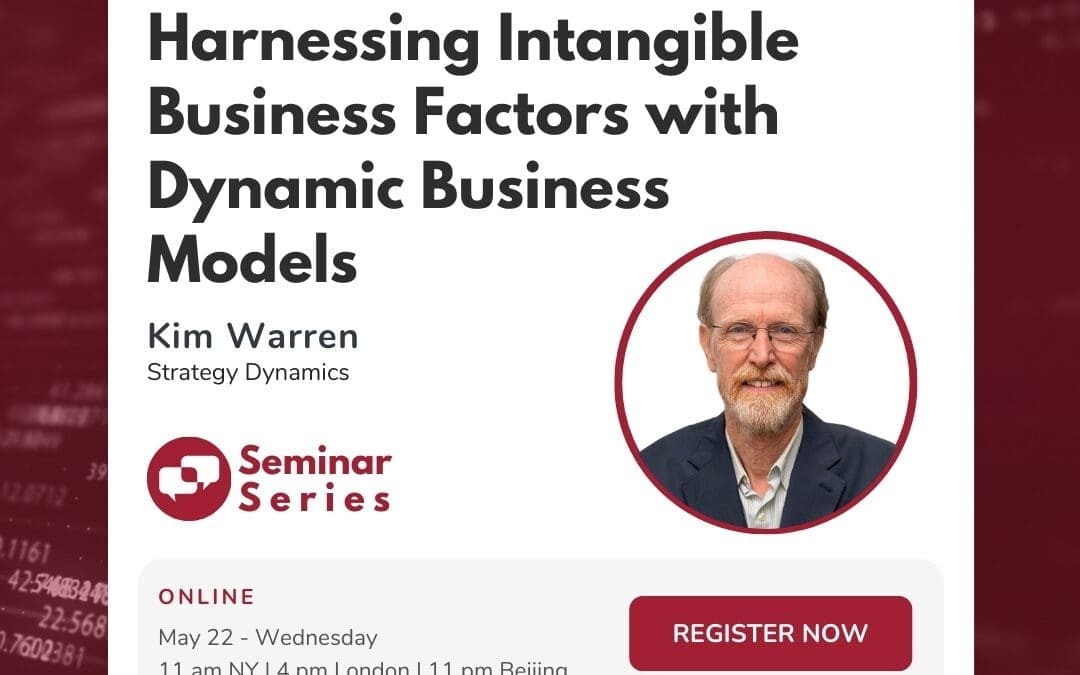
Harnessing Intangible Business Factors with Dynamic Business Models
May 22 at 11 am NY | 4 pm London | 11 pm Beijing | Time Converter This seminar is part of our special series System Dynamics for Business Innovation with Kim Warren. A series of nine webinars offering a deep dive into the application of System dynamics in Business....
Recent Business cases
How Did En-ROADS Get 755,000 users? Lessons on Modeling, Interface Design, and Facilitation
How Did En-ROADS Get 755,000 users? Lessons on Modeling, Interface Design, and Facilitation Achieving widespread engagement is a significant challenge with a System Dynamics model. Yet, En-ROADS, a climate solutions simulator developed by Climate Interactive and MIT...
Solving Bottlenecks in Dairy Production Facilities with System Dynamics
Solving Bottlenecks in Dairy Production Facilities with System Dynamics EXECUTIVE Summary FrieslandCampina faced potential bottlenecks in production due to the merging of two factories. They hired SD&Co which employed system dynamics simulation models to predict...
A Design Value Calculator: A System Dynamics Boardgame
A Design Value Calculator: A System Dynamics Boardgame EXECUTIVE Summary Product design is a specific form of complex innovation that touches all areas of an organization’s management. While entrepreneurs recognise the value of design, they often tend to focus...
Join us
MIT System Dynamics Seminar | Deep Uncertainty, Collective Action, and Coordination in the Face of Climate Change
You are invited to attend the System Dynamics Seminar being held on Friday, May 10th from 12:30-2:00pm EST in the Jay W. Forrester conference room, E62-450, or via Zoom: https://mit.zoom.us/j/94114971874 (Password: SDSP24). Our virtual guest speaker will be Elke U. Weber (Princeton University) presenting Deep Uncertainty, Collective Action, and Coordination in the Face of Climate Change: How Attention and Choice Processes Influence Choice Outcomes (see abstract and biography link below; announcement attached). Lunch will be provided to those attending in person and a reminder email will be sent out closer to the date.
Climate-change related decisions differ from simpler choices. They (i) involve an intergenerational public good, (ii) often require collective action and coordination, and (iii) typically have elements of deep uncertainty. Organized around these three choice characteristics, I will synthesize three recently published studies that examine how the nature of the physical and/or social environment influences the attentional processes and decision-modes by which such decisions are being made. Understanding the effects of decision context on choice can provide entry points for the design of choice architectures that enable more foresightful decisions, i.e., choices that will not be regretted in the long run.
Bio Link: https://elke-u-weber.com/en/elke-u-weber/biography
Student Chapter Meeting May
We welcome all students to join us for this Student Chapter meeting! We want to provide students with an opportunity to generate ideas for Student Chapter activities, plan the Student Chapter Meeting at ISDC 2024 and fundraising campaign/raffle, and network with your peers.
The Student Chapter provides networking and career-development opportunities for students, early career system dynamicists, and people new to the field.
Student Chapter objectives:
- Extend and unify the knowledge of feedback systems among students, early career system dynamicists and people new to the field all over the world
- Promote the development of System Dynamics and the interchange of knowledge and research in all related fields
- Organise Student-Organized Colloquium in order to promote the communication between the students and the practitioners of the field
- Intensify the communication between and form a basis for cooperation amongst the graduate students in their research
- Generate interest in System Dynamics among undergraduate students
- Create a space to help SD students get into contact with field-related graduate studies and job opportunities
MIT System Dynamics Seminar | Work Faster? Put in Longer Hours? An Assessment of Reactive Resilience Policies in Supply Chains
Please visit the MIT System Dynamics Seminars page for more information.
You are invited to attend a supplemental System Dynamics seminar being held on Tuesday, April 23rd from 12:00-1:00pm EST in the Jay W. Forrester conference room, E62-450, or via Zoom: https://mit.zoom.us/j/91800701005 (Password: SDSP24). Our guest speakers will be Nitin Joglekar (Boston University), Mukesh Kumar and Naoum Tsolakis (University of Cambridge) presenting Work Faster? Put in Longer Hours? An Assessment of Reactive Resilience Policies in Supply Chains (see abstract and authors’ info below). Lunch will be provided to those attending in person and a reminder email sent out closer to the date.
Abstract
We assess triple disruptions (reduced upstream and downstream capacities, and increased demand) in supply chains by analyzing reactive resilience trade-offs between costs and benefits. Reactive resilience refers to considering short duration alternatives within existing supply chain configurations (e.g., working overtime, job reassignments, speeding up adjustment times, and reducing inventory coverages). Our work highlights behavioral issues around fairness and equity for the workforce under such adverse scenarios. The point of departure for our work is fieldwork before, during, and after COVID-19 disruptions in a fish supply chain. We develop a system dynamics simulation model that builds on the classic beer game structure to set up a novel Cost-Adjusted Continuity (CAC) metric to account for cost-benefit trade-offs. We find that: (1) differing emphasis, and allied mental models, on reducing either inventory cost or labor cost (or both), crucially affects CAC outcomes; (2) working harder (putting in longer hours, under isolation) creates burnout. Job redesign with fair assignments can address this burnout issue and improve CAC outcomes; (3) Double disruption (i.e., introducing a capacity constraint either upstream or downstream in the supply chain, joint with increased demand) has an asymmetric impact on reactive resilience governance choices, when compared to triple disruptions. CAC governance based on multiple disruptions need not align with single disruption policies examined in a classic beer game.
We will end this talk with by discussing opportunities in reactive resilience research within the context of current debates on enhancing and monitoring resilience in supply chains.
Authors
Nitin Joglekar works at the intersection of AI, Design (of Products and Supply Chains) and allied Ethical issues at Boston University. He recently edited a special issue of the Production and Operations Management Journal on managing pandemics. https://people.bu.edu/joglekar
Mukesh Kumar heads the Industrial Resilience Research Group at the University of Cambridge, UK. Currently, he is running Global Supply Chain Observatory project, together with Google, on monitoring resilience. https://www.ifm.eng.cam.ac.uk/people/mk501/
Naoum Tsolakis is with the Institute for Manufacturing (Cambridge, UK) and is an Assistant Professor at the International Hellenic University in Greece. His works on AI and Intelligent Systems in Logistics and Supply Chains. https://www.ifm.eng.cam.ac.uk/people/nt377/
MIT System Dynamics Seminar | Approaches to Encouraging Health Exchange Participation
You are invited to attend the System Dynamics Seminar being held on Friday, April 26th from 12:30-2:00pm EST in the Jay W. Forrester conference room, E62-450, or via Zoom: https://mit.zoom.us/j/94114971874 (Password: SDSP24). Our guest speaker will be Soheil Ghili (Yale University) presenting Approaches to Encouraging Health Insurance Takeup (see abstract and brief bio below; announcement and paper attached). Lunch will be provided to those attending in person and a reminder email will be sent out closer to the date.
If you would also like to schedule a 30-minute 1:1 meeting with him before or after the seminar, please fill out the following link by COB Friday, April 19th and I will confirm times and location with a calendar invite: https://rallly.co/invite/zVH4Rg1mCMRB. Please notify me if you need to meet over Zoom instead.
Abstract
The effectiveness of inducements to participate in health insurance exchanges, be those inducements of the Affordable Care Act (ACA) or of the Republican proposals to replace the ACA mandate, are an empirical matter. We study participation and welfare under different policies. We depart from the fully rational model of insurance; this decision is motivated by the fact that, under ACA rules, millions remain uninsured despite the heavy premium subsidies, often declining almost free coverage. We estimate the role of different frictions to participation, such as: uncompensated care, myopia and distaste for complying with the ACA mandate. Given these frictions we solve the equilibrium in the exchanges under various government interventions: subsidies, pricing regulations, individual mandate penalties, and dynamically based penalties. We find that the main friction is myopia. Although subsidies are necessary for the market under current rules not to collapse, subsidies would not be necessary absent myopia. Contrary to previous findings risk pricing does quite well, aided by subsidies and uncompensated care. Barring those, risk pricing would deliver very low welfare, due to reclassification risk.
Soheil Ghili is an assistant professor of Marketing at Yale School of Management. His main research interests are industrial organization and quantitative marketing. His recent research has examined optimal pricing strategies, with a focus on second-degree price discrimination mechanisms such as nonlinear pricing and product bundling. Methodologically, I use a combination of econometrics, micro-economic theory, and experiment design.
MIT System Dynamics Seminar | Economic Complexity, Diversification and Green Supply Chains
Please visit the MIT System Dynamics Seminars page for more information.
You are invited to attend the System Dynamics Seminar being held on Friday, April 19th from 12:30-2:00pm EST in the Jay W. Forrester conference room, E62-450, or via Zoom: https://mit.zoom.us/j/94114971874 (Password: SDSP24). Our guest speaker will be Muhammed Yildirim (Harvard Growth Lab) presenting Economic Complexity, Diversification and Green Supply Chains (see abstract and brief bio below; announcement attached). Lunch will be provided to those attending in person and a reminder email will be sent out closer to the date.
If you would also like to schedule a 30-minute 1:1 meeting with her before or after the seminar, please fill out the following link by COB Friday, April 12th and I will confirm times and location with a calendar invite: https://rallly.co/invite/Ztq0drVIo7gO. Please notify me if you need to meet over Zoom instead.
Abstract
To decarbonize, the world needs to rapidly scale supply chains for green products. This offers countries and regions economic opportunities, but these economic opportunities are path dependent, based on existing industries, capabilities and knowhow present in a location. Economic complexity is a method that lets us measure places’ diversification opportunities and capabilities, and how well places’ capabilities match with specific opportunities and products. In this presentation, I will explain the economic complexity approach, use it to explore the properties of green supply chain products, analyze diversification opportunities of countries, and analyze how announced green investment projects in the US fit with regional economies.
Muhammed A. Yildirim serves as the Director of Academic Research at the Harvard Growth Lab and holds the position of Associate Professor of Economics at Koç University (currently on leave). He earned his Ph.D. from Harvard University and a BS degree from the California Institute of Technology. Prior to joining the faculty at Koç University, he was a postdoctoral fellow at the Center for International Development at Harvard University. His research primarily focuses on understanding network and spillover effects across various research domains, including industrial policy, international trade, productivity, economic growth, and matching. Dr. Yildirim received the Marie Skłodowska-Curie Individual Fellowship in 2015, the Young Scientist Award (BAGEP) from the Science Academy in Turkey in 2021, and Koç University’s College of Administrative Sciences and Economics Outstanding Faculty Award in 2021.
Networking Session – (Natural) Resource Sharing
Please join us online Tuesday, April 30th 8PM ET (Boston time. Here is a time converter). See the “Join” button at the bottom of this page for the meeting link.
In this Collective Learning Meeting (CLM), WPI System Dynamics, the SDS Environmental SIG, Water SIG and Transboundary Groundwater Resilience (TGR) Network of Networks will co-host a
Networking Session – (Natural) Resource Sharing
We will have a round of introductions and then discuss
- Sharing System Dynamics literature, models, etc. (Some of which may be on sharing natural resources!)
- Sharing other types of resources (e.g. data, one’s time to serve one’s professional or academic community, etc.)
- Anything else the group wishes
We will not record this session but will take notes and share them. You can view the frequently asked questions (FAQ) from these sessions and more on our website.
If you are interested in presenting your work in a future CLM, please contact Christine Tang (ctang@wpi.edu).
Tentative Schedule
https://wp.wpi.edu/lcsap/events/collective-learning-meetings-clm/
Telephone details: https://bit.ly/CLM-2024-04-30
Virtual Career Fair by MINDS & SDS
The Master students in System Dynamics at the University of Bergen, in partnership with the System Dynamics Society, are excited to host an enriching Virtual Career Fair. This event is designed to connect students, alumni, and professionals in the field of System Dynamics with leading organizations.
- Date: Monday, April 22, 2024
- Time: 11:00 am NYC | 4 pm London | Time Converter
- Location: Online (Zoom Virtual Meeting)
This virtual fair offers an innovative platform where participants can interact with multiple companies in separate break-out rooms. These rooms provide a space for attendees to engage in meaningful discussions with company representatives. Participants will have the opportunity to navigate freely between rooms, allowing for a diverse and comprehensive career fair experience.
Zoom Link: https://uib.zoom.us/j/62696138409?pwd=a0RWTUMvRHNxd2FidXIxakVpdHFxdz09
Join As an Organization
To join as a participating organization, please register via our Organization Registration Form. This is an opportunity to meet potential candidates and showcase your company’s culture and career opportunities.
MIT System Dynamics Seminar | Strategic Investments for Platform Launch and Ecosystem Growth
Please visit the MIT System Dynamics Seminars page for more information.
You are invited to attend the System Dynamics Seminar being held on Friday, April 12th from 12:30-2:00pm EST in the Jay W. Forrester conference room, E62-450, or via Zoom: https://mit.zoom.us/j/94114971874 (Password: SDSP24). Our guest speaker will be Burcu Tan (Anderson School of Management, UNM) presenting Strategic Investments for Platform Launch and Ecosystem Growth: A Dynamic Analysis (see abstract and brief bio below; announcement attached). Lunch will be provided to those attending in person and a reminder email will be sent out closer to the date.
If you would also like to schedule a 30-minute 1:1 meeting with her before or after the seminar, please fill out the following link by COB Friday, April 5th and I will confirm times and location with a calendar invite: https://rallly.co/invite/CI5nD2MSCPLB. Please notify me if you need to meet over Zoom instead.
Abstract
Multi-sided platforms must make decisions on both pricing and engineering investment and must continually adjust them as the platform scales over its lifecycle. Engineering investments can be allocated to features that improve a platform’s standalone value, social features to take advantage of same-side network effects, or integration tools and boundary resources to facilitate third-party content creation. Guidance in the academic or practitioner literature is not granular. Moreover, relevant normative economic models that consider externalities are rarely dynamic. Hence, there is a gap in knowledge about how to best balance tradeoffs between different strategic decisions throughout the entire platform lifecycle. To begin to address this gap, we explore normative strategies for coordinating pricing and engineering investment decisions on a continuous basis under different ecosystem conditions. We build a simulation model informed by economics and marketing theory and perform extensive sensitivity analyses on key parameters in different ecosystem scenarios over a multi-period lifecycle. We find that pricing and investment strategies must continuously change to perform optimally. In particular, strategies that are most effective at launch often differ from those that are most effective during scaling as well as those most effective at maturity. We also find that the optimal strategy depends strongly on the monetization model and market aversion to price changes. Lastly, we specifically examine four different industry segments: mobile platforms, social media, the sharing economy, and business-to-business. The results provide evidence that the trajectory of platform pricing and investment strategies should greatly differ depending on industrial context.
Brief Bio
Burcu Tan (btan@unm.edu) is an Associate Professor at Anderson School of Management, University of New Mexico. She holds a Ph.D. in Operations Management from the University of Texas at Austin and a BSc. and MSc. in Industrial Engineering from Bogazici University. Her research interests include digital platforms, supply chain management, socially responsible operations, and system dynamics. Her work has been published in Information Systems and Operations Management journals such as Information Systems Research, Journal of Management Information Systems, and Production and Operations Management. She is a Senior Editor at Production and Operations Management.
MIT System Dynamics Seminar | The remarkable universality of technology growth suggests that the green energy transition will happen quickly
Please visit the MIT System Dynamics Seminars page for more information.
You are invited to attend the System Dynamics Seminar being held on Friday, April 5th from 12:30-2:00pm EST in the Jay W. Forrester conference room, E62-450, or via Zoom: https://mit.zoom.us/j/94114971874 (Password: SDSP24). Our virtual guest speaker will be J. Doyne Farmer (Oxford Martin School) presenting The remarkable universality of technology growth suggests that the green energy transition will happen quickly (see abstract and brief bio below; announcement attached). Lunch will be provided to those attending in person and a reminder email will be sent out closer to the date.
If you would also like to schedule a 30-minute 1:1 meeting with him before or after the seminar, please fill out the following link by COB Friday, March 29th and I will confirm times and location with a calendar invite: https://rallly.co/invite/sVOs8NoOgYkn. Please notify me if you need to meet over Zoom instead.
Abstract
How fast will the green energy transition happen? To address this question we assembled a database on the deployment of 42 technologies, ranging from railroads to the internet. When the individual time series are rescaled to have the same rates and levels, they have a universal form that is very close to a standard logistic S-curve. Although each technology’s rate of deployment varies due to many factors, the universal S-curve explains most of their behavior. We show that S-curve time series present challenges including autocorrelation, heteroscedastic noise and parameter bias, and develop a probabilistic method for forecasting deployment that takes these into account. Application to the time series for wind and solar energy suggest that we have still not reached rates of maximum deployment, and that the green energy transition is likely to happen surprisingly quickly.
Brief Bio
J. Doyne Farmer is Director of the Complexity Economics program at the Institute for New Economic Thinking at the Oxford Martin School, Baillie Gifford Professor in the Mathematical Institute at the University of Oxford and an External Professor at the Santa Fe Institute. His current research is in economics, including agent-based modeling, financial instability and technological progress. He was a founder of Prediction Company, a quantitative automated trading firm that was sold to the United Bank of Switzerland in 2006. His past research includes complex systems, dynamical systems theory, time series analysis and theoretical biology. He was an Oppenheimer Fellow and the founder of the Complex Systems Group at Los Alamos National Laboratory. While a graduate student he built the first wearable digital computer, which was successfully used to predict the game of roulette

